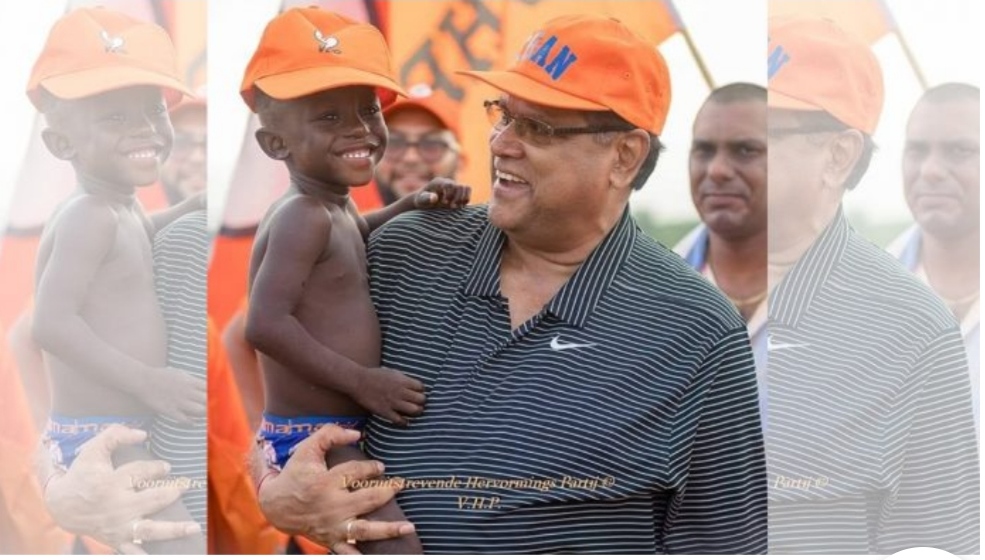Suriname elects Indian-origin President, ends dictatorial rule
Suriname, has Hinduism as the second most practiced religion in the country. It has now elected former police chief Chan Santokhi to replace Desi Bouterse as president.

President Chan Santokhi
Indians we’re settled in the Dutch plantations in Suriname under the British rule and have since stayed on slowly amalgamating themselves with the soil. Slowly these dentures laborers from Bihar and Eastern UP bought land, started changing their children to schools and colleges.
Then like true PURVAIYAS these Girmitiyas entered the final frontier that us politics.They also never abandoned their religion and practiced it with full vigour and freedom. They now form the religious majority in North Suriname.
The 2012 census revealed that though Christianity was the predominant religion in Suriname, with 48.4 per cent of the country’s total population, Hinduism was the second most practiced religion, comprising 22.3 per cent of the population.
The country also accounts for the third-highest number of Hindus in the Western Hemisphere.
Suriname is a small country in South America with a significant Hindu population, has now elected a new president, ending the dictatorial rule of Desi Bouterse.
Chan Santokhi, an Indian-origin former police chief, won a landslide victory in the general elections conducted in the country in May.
Santokhi, who was also the leader of Opposition, replaced Bouterse, who is facing murder charges and has also been convicted of drugs smuggling abroad.
The new president now inherits a country on the verge of bankruptcy, widespread corruption and the coronavirus pandemic. So far, there have been 780 cases with 18 deaths.
Suriname is a former Dutch colony but the country’s relations with the Netherlands, which was once its primary trade partner, deteriorated under Bouterse’s rule.
Bouterse shifted Suriname’s foreign alliances away from the Netherlands and toward China and nearby Venezuela, whose redistributive economic policies and anti-imperialist rhetoric he copied at home.
Santokhi, the 61-year-old member of the Progressive Reform Party (PRP), will be sworn in as president on 16 July.
As police chief, Santokhi investigated the now former-president for his involvement in the “December Murders” where 15 young, prominent Surinamese men were killed after they criticised Bouterse’s military dictatorship.
While Bouterse was convicted of the crime, his sentence was never enforced for fear of riots. Four decades of running the country has earned him deep connections in the military as well as the love of a loyal voter base.
Both Santokhi and Bouterse were present in Congress Monday, where Bouterse warned Santokhi, “It won’t be an easy job; I’ve experienced that myself. But it will succeed if we work together. If you need me, you know where to find me.”
Meanwhile, Santokhi promised to unite the country’s diverse citizens and addressed his greatest obstacle. “We’re on the brink of a financial abyss. There is concern. The treasury is virtually empty. This crisis surpasses any worst-case scenario we’ve considered. We will have to face the crisis together. We have no time to lose.”




